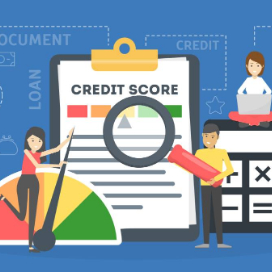

Avoid public Wi-Fi unless you take extra precautions.
Public Wi-Fi is convenient, but represents a significant security risk. These networks are frequently not encrypted, which means your information can easily be intercepted by others on the network. Never log in to your bank account over public networks. The only exception is if you use a virtual private network (VPN) service. A VPN creates a secure, encrypted connection, acting as a private tunnel for your information. If you don't subscribe to a VPN and don't have safe access to a private network, you can securely use a cellular network to bank.
Ensure the website you're accessing is secure.
Whenever you're on a banking website (or any site where you're sending sensitive information), you should look for an "https:" (the "s" stands for "secure") and a small padlock icon next to the web address. These tell you that the website provides a secure and private connection. In most cases, this is done via the transport layer security (TLS) protocol. This means the data is encrypted, cannot be modified during transfer, and is authenticated to verify the identity of both communicating parties. Some websites still use older versions of TLS known as SSL, or secure sockets layer. To learn more about a website's security, simply click on the padlock symbol.
Run anti-virus and anti-malware software.
Malware, short for malicious software, refers to software that can infiltrate your computer and steal, encrypt, or delete sensitive data. Criminals, using a type of malware known as a banking Trojan, can break into online bank accounts and steal money. To secure your data and money, be sure your computer is running the latest anti-virus and anti-malware software available.
Be wary of email and text scams.
Many scammers will impersonate banks and send emails or texts that seem legitimate. But if the sender asks you to verify your personal information or account details, it's likely to be a scam. If you get a message that you believe is a scam, call your bank using information printed on your debit or credit card. You should also be careful of any links in messages reportedly sent by your bank, instead, manually type in the address.
Protect you and your business.
We're here to help keep your finances safe while banking online. Learn more about ways to protect your money on our Security Resources page.
Disclosures
( 1 ) The information contained herein may not represent the views of Citizens State Bank. It is presented for general informational purposes only and does not constitute tax, legal, or business advice.
( 2 ) The Citizens State Bank Blog website may contain links to third-party websites not affiliated with Citizens State Bank and may have a different privacy policy and level of security. Citizens State Bank is not responsible for, and do not endorse or guarantee, the privacy policy, security, accuracy, or performance of the third-party's website or the information, products, or services that are expressed or offered on that website.







